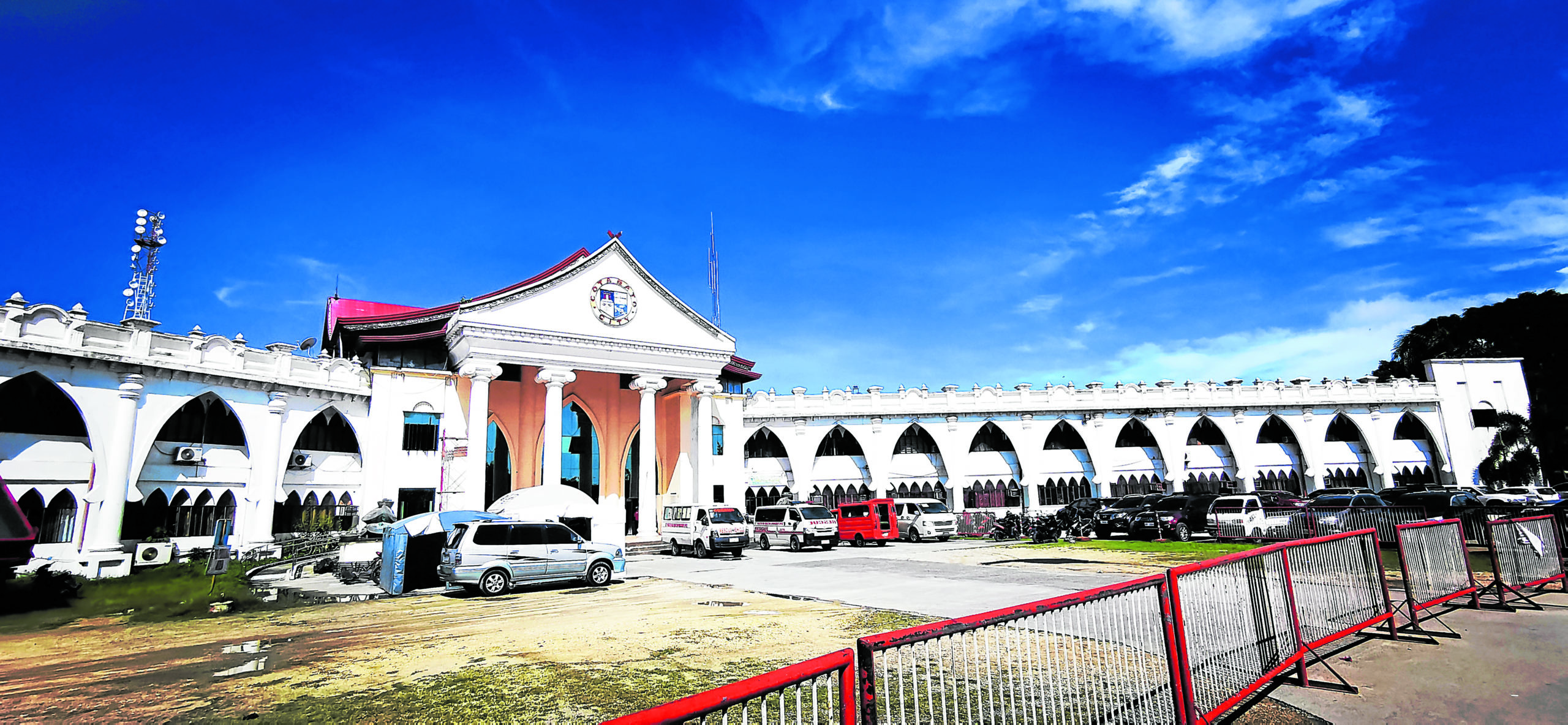
SEAT OF GOVERNMENT It was business as usual at the Cotabato City hall on Tuesday when the national government turned over the city’s supervision to the Bangsamoro Autonomous Region in Muslim Mindanao. The city officials skipped the handover rites. —FERDINANDH CABRERA
COTABATO CITY—After 31 years, Cotabato City is again part of Moro autonomy after the national government turned over its supervision to the Bangsamoro Autonomous Region in Muslim Mindanao (BARMM) on Tuesday.
Interior Secretary Eduardo Año led national officials in the handover, in keeping with results of the January 2019 plebiscite, in which a majority of the city’s voters ratified the Bangsamoro Organic Law.
“The people have spoken. Their outcry was loud and clear,” Año told a limited audience at the Shariff Kabunsuan Cultural Complex in the BARMM compound here.
Apart from Cotabato City, the turnover of supervision involved 63 villages in the towns of Aleosan, Carmen, Kabacan, Midsayap, Pigcawayan and Pikit in Cotabato province, which also voted for inclusion in the BARMM in the 2019 plebiscite.
Last year, the provincial government manifested its intent to let the autonomous government supervise the villages.
During the ceremony, Año signed the turnover documents which were accepted by Bangsamoro Interior Minister Naguib Sinarimbo.
Bangsamoro Interim Chief Minister Ahod “Al Haj Murad” Ebrahim noted the political difficulties in implementing the plebiscite results in the city amid the stiff opposition of local officials—first against its inclusion in the BARMM and then its turnover of supervision to the regional government.
“Cultivating the lines of division will not help us in making our collective aspiration a reality,” Ebrahim said.
Mayor nowhere
Mayor Cynthia Guiani-Sayadi and other city officials skipped the turnover rites on Tuesday.
On Monday, city administrator Danda Juanday said they were not attending the event because it would affect the petition that the city filed in the Supreme Court in January last year, which contested the results of the plebiscite.
“Our case will be dismissed on technical grounds if we join the turnover. We don’t want to cause trouble here, we are just awaiting the decision of the Supreme Court,” Juanday said.
Defining moment
Ebrahim said the Bangsamoro government was committed to improving services that could boost the city’s potential. “No constituent shall be left behind,” he said.
BARMM Education Minister Mohagher Iqbal said the official inclusion of Cotabato City in the Bangsamoro “is a defining moment in our history as a people.”
The city is a historic settlement that has been significant for the Maguindanao sultanate and later for the succeeding Spanish and American colonial governments.
In the early part of the 20th century, it was the capital of the vast Empire Province of Cotabato that splintered into the provinces of Maguindanao, Cotabato, South Cotabato, Sultan Kudarat and Sarangani, and the highly urbanized city of General Santos.
Today, it is an independent component city with an area of 176 square kilometers and a population of around 300,000. Geographically and politically, the city is part of Maguindanao.
In 1979, it was part and became the capital of the regional autonomous government for central Mindanao, an entity that was dissolved in 1989 after the Autonomous Region in Muslim Mindanao (ARMM) was created.
‘Anomaly’
The city’s voters opted not to be part of the ARMM even though it was the seat of the regional government.Defense Secretary Delfin Lorenzana, who is a native of Maguindanao, said the noninclusion of the city in the Moro autonomy setup “has always been an anomaly.”
“Close coordination among the national government, regional line agencies and the BARMM local governments must take precedence over any biases any of us may have in the transition,” he said.
Ishak Mastura, chair of the Regional Board of Investment, said the official inclusion of Cotabato City in the BARMM would benefit its development as the hub of Islamic banking and finance in the country.
Mastura said that due to its strategic location, the city is already the “de facto financial center of central Mindanao.” —WITH REPORTS FROM BONG SARMIENTO AND EDWIN FERNANDEZ